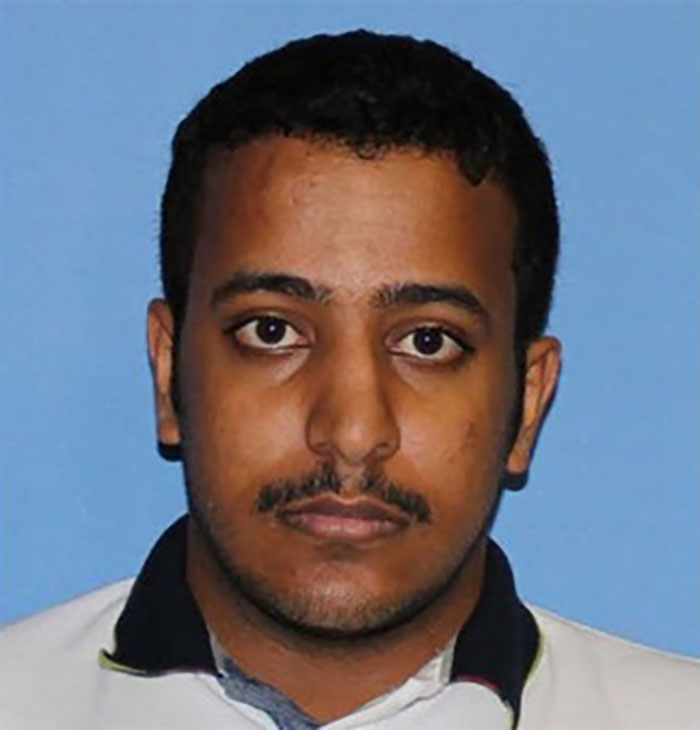Racial hate crimes: a growing concern
Middle Eastern Americans are being wrongly stereotyped
More stories from Sydney Purpora
Photo by submitted
UW-Stout student, Hussain Alnahdi, died Monday Oct. 31 after he was assaulted.
The ongoing problem of racial hate crimes in the United States is spinning out of control; a recent incident close to home illustrates how bad this problem is.
Police responded to a call regarding a physical fight that occurred around 2 a.m. Sunday Oct. 30 at the 400 block of Main Street East, Menomonie.
Witnesses said a six-foot-tall white male assaulted the 24-year-old Saudi male University of Wisconsin-Stout student, Hussain Alnahdi, and fled the scene, according to an article from WEAU.
Officials said the junior business administration student from Buraydah, Saudi Arabia was found unconscious and bleeding from his mouth and nose. He was transported to Mayo Clinic Health System in Menomonie by the fire department and then airlifted to Eau Claire for further care. The student was pronounced dead Monday afternoon.
This incident sent shock waves throughout the nation as the issue of racial profiling becomes more and more horrific. The fact that a foreign exchange student from Saudi Arabia was assaulted, perhaps because of his ethnicity, is astonishing to me.
According to an article in The Washington Post, the death of Alnahdi caused fear that the attack may have been racially motivated. Genesea Carter, an assistant professor of English and philosophy at Stout expressed her concerns on Facebook.
“I absolutely loved teaching the Saudi students who come to Stout,” she wrote. “Now I am deeply worried about my Saudi students’ safety.”
Students should not have to be afraid for their lives as they try to better their education regardless of their race or ethnicity; unfortunately, their fear is completely justified.
According to the FBI’s Uniform Crime Reports: Hate Crime Statistics, in 2014 48.3 had percent of victims of single-bias hate crimes were targeted because of offender’s’ bias against race.
Although that percentage is made up of a variety of different races and ethnicities, most hate crimes are stemming from racist offenders.
Some people say racism is dead; to them I say au contraire.
In light of recent events in the Middle East and the United States’ history with terrorism, unfortunately, most people categorize anyone of that race as a negative and, more often than not, wrongly assumed stereotype.
In an article posted in Arab News, writer Hayat Ahmad said Saudi Arabians are harshly stereotyped in the U.S., adding to the ongoing problem.
“Saudis are still stereotyped in the West as either being super rich, terrorists or riding camels out in the desert,” Ahmad said.
Why do they continuously have these generalized stereotypes hanging over their heads everywhere they go? Just because someone is of Middle Eastern descent does not mean they should be called offensive terms, dehumanized or injured based on someone’s racist opinion.
Hate crimes against Middle Eastern people have got to stop. It is neither fair nor justifiable to assume anyone from those countries live up to cruel, poorly based stereotypes.
Since 9/11, there have been numerous accounts of racial profiling in the U.S. From airport security to interactions at the grocery store, society is constantly labeling Middle Eastern Americans as terrorists.
Just this past April, a Saudi student at Idaho State University in Pocatello experienced the wrath of these crimes.
According to an article in the New York Times, Nezar Alnejidi said he was one of five Saudi and Kuwait students who were subject to burglaries while they were attending prayer at a local mosque.
“It’s very scary,” Alenjidi said.
He said he fears that the burglars targeted the Muslim students specifically by obtaining their addresses. Evidently, only Muslim students were robbed in large complexes.
We have strong evidence to believe this won’t be the last racial hate crime in our area.
Menomonie is 91.9 percent white with people of Middle Eastern ethnic background falling into the other category of 1.9 percent. With a predominantly white city, it is no coincidence that some races are thought of as the “other;” but that doesn’t mean it is right.
We need to treat Middle Eastern Americans with the same respect that we do others. Whether they are a student, business colleague or a stranger passing you by on the street, we are all human and deserve to be treated as such.

